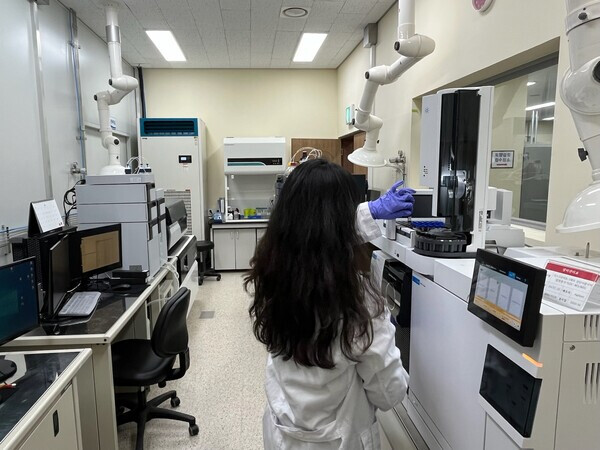
Daejeon, South Korea – The Daejeon Metropolitan City Agricultural Technology Center has achieved a significant milestone, securing international accreditation for its exceptional capabilities in analyzing pesticide residues in agricultural produce. The center's outstanding performance in the globally respected Food Analysis Performance Assessment Scheme (FAPAS), a proficiency testing program based in the United Kingdom, has earned it a 'Satisfactory' rating across all evaluated parameters, underscoring its world-class analytical precision and reliability.
The rigorous FAPAS assessment focused on the quantitative analysis of 11 distinct pesticide residues, including Azinphos-ethyl, within a sample of apple puree. The evaluation process hinges on the calculation of a standardized score, or z-score, for each participating laboratory's reported measurements. This score is derived by dividing the deviation of a laboratory's result from the assigned reference value by the standard deviation of the results from all participating laboratories. The FAPAS protocol designates z-scores with an absolute value of ≤2 as 'Satisfactory,' scores between 2 and 3 as 'Questionable,' and scores ≥3 as 'Unsatisfactory.' Notably, results closer to zero signify superior analytical accuracy.
The Daejeon Agricultural Technology Center demonstrated exceptional proficiency, achieving z-scores ranging from an impressive -0.4 to 0.8. This outstanding performance places the center alongside leading analytical laboratories worldwide, validating its robust analytical methodologies and the expertise of its personnel. The 'Satisfactory' rating across all tested pesticide compounds serves as a powerful testament to the center's commitment to accuracy and the integrity of its testing procedures.
The Agricultural Product Safety Analysis Laboratory at the Daejeon Agricultural Technology Center plays a crucial role in safeguarding public health and bolstering consumer confidence in locally sourced agricultural products. The laboratory currently conducts over 900 pesticide residue analyses annually, with a particular focus on produce destined for infant food programs and local food retail outlets. Recognizing the interconnectedness of agricultural health, the center is proactively expanding its analytical scope to encompass vital environmental components such as soil, honey, and agricultural water sources. This broadened approach aims to ensure the overall safety and sustainability of the agricultural ecosystem within the Daejeon region.
Lee Hyo-sook, the Director of the Daejeon Agricultural Technology Center, expressed immense pride in this international recognition. "The 'Satisfactory' rating from FAPAS officially acknowledges the world-class caliber of our analytical capabilities," she stated. "Leveraging our advanced analytical technologies, we remain steadfast in our commitment to providing safe and trustworthy food products, thereby enhancing the credibility of Daejeon's agricultural sector." Director Lee further emphasized the center's ongoing dedication to continuous improvement, stating, "We will continue to invest in the advancement of our analytical techniques and the professional development of our staff to solidify our position as a premier analysis institution recognized both nationally and internationally."
The acquisition of FAPAS accreditation holds significant implications for the Daejeon agricultural community and its consumers. It provides an independent validation of the reliability of the center's pesticide residue testing, assuring stakeholders that agricultural products analyzed at the facility meet stringent international standards for safety. This recognition can facilitate greater market access for local producers and enhance consumer trust in the safety and quality of Daejeon-grown food.
Furthermore, participation in international proficiency testing programs like FAPAS fosters a culture of continuous improvement within the laboratory. By comparing their performance against that of other leading laboratories globally, the center can identify areas for potential enhancement in its methodologies and quality control procedures. This commitment to excellence ultimately contributes to a more robust and reliable food safety system.
The Daejeon Agricultural Technology Center's achievement underscores the growing importance of accurate and reliable pesticide residue analysis in ensuring food safety and promoting sustainable agricultural practices. As global concerns regarding food safety continue to rise, the center's dedication to maintaining world-class analytical standards serves as a model for other agricultural institutions striving for excellence in this critical field. This international recognition not only elevates the profile of the Daejeon Agricultural Technology Center but also contributes to the broader efforts in South Korea to ensure the safety and quality of agricultural products for both domestic consumption and potential export markets. The center's commitment to expanding its analytical scope further demonstrates a proactive approach to safeguarding the entire agricultural environment, contributing to long-term sustainability and consumer well-being.
[Copyright (c) Global Economic Times. All Rights Reserved.]






























